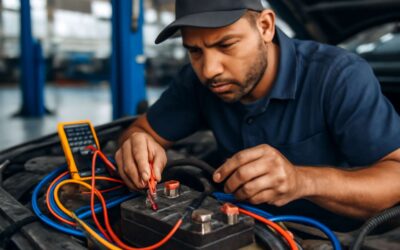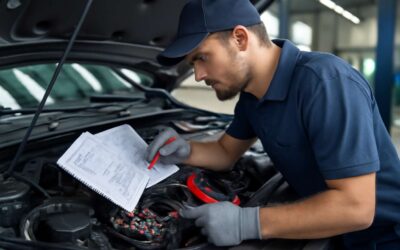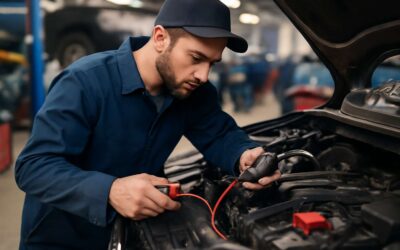
The auto electrical system of a car is responsible for starting your engine, recharging the battery and powering all the lights and instruments in your vehicle. It also powers ancillary features like power seats, heated seats and even entertainment centers. While it’s easy to take the auto electrical system for granted, you should always be aware of its health. This will allow you to notice any signs of problems so that they can be addressed sooner rather than later and avoid costly repairs.
An electrical fault can be caused by any number of things from a dead battery to a failing alternator. This is why it is important to be vigilant for warning signs like dimming headlights, a faulty radio or even an odd smell when the vehicle is running. These can indicate that the electrical system is faulty and should be checked out by a professional mechanic like Sant Automotive.
The most obvious part of the auto electrical system is the battery, which lends its powerful electric potential to start the engine and supply current to lights, charging systems, climate control and more. Batteries are chemical cells with a high electric potential and have two terminals, one positive and one negative. Each is connected to other parts of the circuit by a series of switches and relays that are designed to keep the current in a closed loop. This will prevent any components from drawing too much current and causing damage.
In addition to the batteries, there is a DC generator that will recharge your battery while the car is moving. It will produce voltage ranging from 13.5 to 14.5 volts, which is then passed through a regulator to moderate its power output. This will help to keep the battery charged and protect the rest of the electrical system in your car.
Another component of the electrical system is fuses, which are used to moderate current flow by protecting circuits that cannot handle it. Each fuse is rated for a certain amount of power and has a colour code to let you know which electrical components it will connect to. If too much current is sent through a wire, which can cause it to overheat and break, the fuse will ‘sacrifice’ itself by blowing, which will then break the circuit.
If you’re planning to do any work on your car’s electrical system, it is essential that you invest in a good soldering iron. This is because it will allow you to connect wires more securely and permanently than by simply twisting them together or taping them. It will also be a lot safer as you won’t be risking an electrical short.



0 Comments